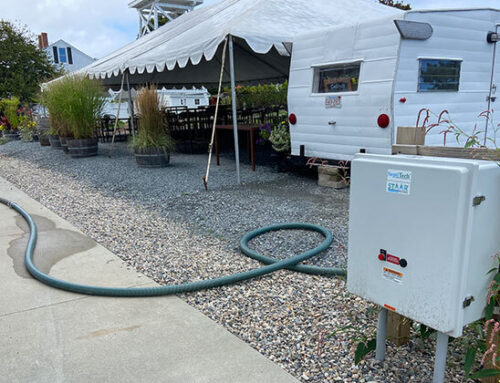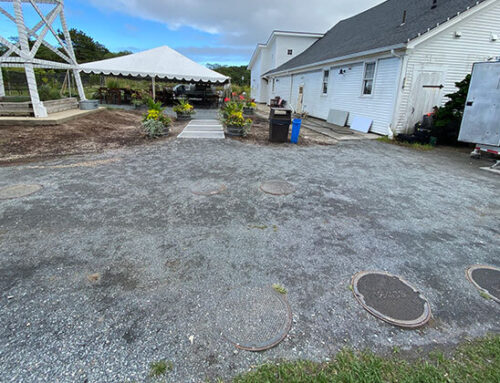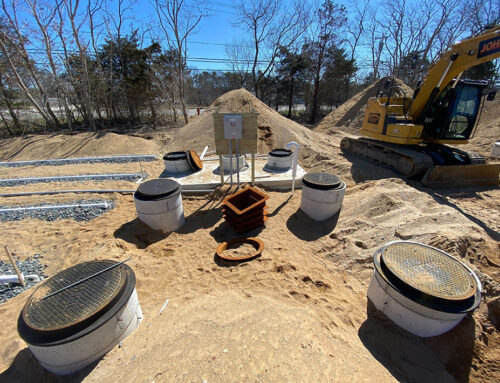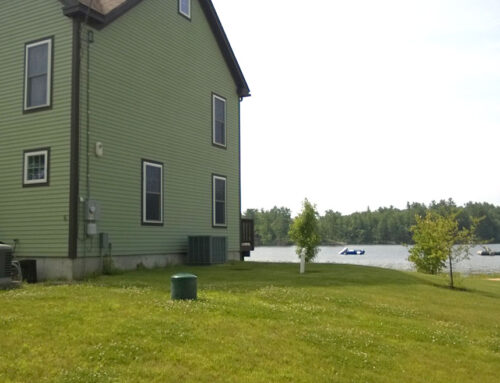At SeptiTech, we pride ourselves on providing advanced septic tank solutions in Portland, wastewater trickling filters in Portland, trickling filter wastewater treatment, and wastewater denitrification. Today, we will delve into a crucial aspect of wastewater treatment—denitrification. In this comprehensive post, we will break down the process of wastewater denitrification in Portland, exploring its importance, mechanisms, and benefits for our community and the environment.
Understanding Nitrogen Pollution
Before diving into wastewater denitrification in Portland, it’s essential to understand the significance of nitrogen pollution in wastewater. Nitrogen is a vital nutrient for plant growth and ecosystem balance, but human activities such as agriculture, industrial production, and wastewater discharge have significantly increased nitrogen levels in the environment.
One of the primary sources of nitrogen pollution in wastewater is sewage effluent. Human waste contains nitrogen compounds, including ammonia and organic nitrogen, which are released into wastewater treatment systems. Additionally, agricultural runoff, stormwater runoff, and industrial discharges contribute to nitrogen pollution by introducing fertilizers, pesticides, and other nitrogen-containing chemicals into waterways.
At SeptiTech, we know that excess nitrogen in water bodies can lead to a range of environmental problems. Nitrogen stimulates the growth of algae and aquatic plants, leading to eutrophication—a process characterized by excessive plant growth, oxygen depletion, and harmful algal blooms. These blooms can produce toxins harmful to aquatic organisms and humans, leading to fish kills, habitat degradation, and public health concerns. Addressing nitrogen pollution requires comprehensive wastewater treatment strategies, including the implementation of denitrification technologies.

The Role of Wastewater Denitrification in Portland
Denitrification is a natural biological process that converts nitrate (NO3-) and nitrite (NO2-) into nitrogen gas (N2) or nitrous oxide (N2O) under anaerobic conditions. In wastewater treatment systems, denitrification occurs in anaerobic zones where oxygen levels are low or absent.
The denitrification process is facilitated by specialized bacteria known as denitrifiers. These microorganisms use nitrate and nitrite as electron acceptors in their metabolic pathways, reducing them to gaseous nitrogen compounds. Denitrifiers belong to various bacterial genera, including Pseudomonas, Paracoccus, and Bacillus, each contributing to different stages of the denitrification process.
During wastewater denitrification in Portland, denitrifying bacteria enzymatically reduce nitrate to nitrite, nitric oxide (NO), and finally, nitrogen gas (N2). Nitrous oxide (N2O), a greenhouse gas with potent global warming potential, may also be produced as an intermediate product. However, efficient denitrification systems aim to minimize N2O emissions through proper process control and optimization.
By converting nitrogen compounds into gaseous form, denitrification effectively removes excess nitrogen from wastewater, preventing its accumulation in water bodies and mitigating the risk of environmental pollution. Denitrification plays a crucial role in maintaining water quality, preserving aquatic habitats, and supporting the health and biodiversity of ecosystems.
SeptiTech
Your Source for wastewater denitrification and wastewater trickling filters in Portland.
The Denitrification Process
Anaerobic Conditions
Wastewater denitrification in Portland requires anaerobic conditions, meaning that the environment must be devoid of oxygen. This is typically achieved by creating anoxic zones within wastewater treatment systems. In these zones, oxygen levels are minimized, allowing denitrifying bacteria to thrive and carry out the denitrification process. SeptiTech’s advanced designs ensure optimal conditions for denitrification, creating anaerobic environments where nitrogen-transforming bacteria can flourish.
Microbial Activity
Denitrifying bacteria are the workhorses of the denitrification process. These microorganisms utilize nitrate and nitrite as electron acceptors in their metabolic pathways, reducing them to nitrogen gas or nitrous oxide. The key microbial genera involved in denitrification include Pseudomonas, Paracoccus, and Bacillus, each contributing to different stages of the reduction process. By leveraging the natural capabilities of these bacteria, wastewater treatment systems can achieve effective nitrogen removal.
Nitrate Reduction
The process of wastewater denitrification in Portland involves a series of reduction steps that convert nitrate to nitrogen gas. These steps include:
Nitrate to Nitrite: The first step involves the reduction of nitrate (NO3-) to nitrite (NO2-), catalyzed by the enzyme nitrate reductase.
Nitrite to Nitric Oxide: The second step involves the reduction of nitrite (NO2-) to nitric oxide (NO), catalyzed by the enzyme nitrite reductase.
Nitric Oxide to Nitrous Oxide: The third step involves the reduction of nitric oxide (NO) to nitrous oxide (N2O), catalyzed by the enzyme nitric oxide reductase.
Nitrous Oxide to Nitrogen Gas: The final step involves the reduction of nitrous oxide (N2O) to nitrogen gas (N2), catalyzed by the enzyme nitrous oxide reductase.
Each step in this process is critical for the effective removal of nitrogen from wastewater, resulting in the production of harmless nitrogen gas.
Nitrogen Gas Production
The end product of denitrification is nitrogen gas (N2), which is harmless and inert. By converting nitrogen compounds into gaseous form, denitrification effectively removes excess nitrogen from wastewater, preventing its accumulation in water bodies and reducing the risk of environmental pollution. This process plays a crucial role in maintaining water quality and supporting the health of aquatic ecosystems.

Benefits of Denitrification
Wastewater denitrification in Portland offers several key benefits for wastewater treatment and environmental protection:
Environmental Protection
Denitrification helps mitigate nitrogen pollution, reducing the risk of eutrophication, algal blooms, and aquatic habitat degradation. By promoting environmental sustainability, denitrification contributes to the health and well-being of ecosystems and communities.
Regulatory Compliance
Many regulatory agencies require wastewater treatment facilities to meet stringent nitrogen discharge limits. Denitrification provides an effective means of achieving compliance with these regulations, ensuring that treated effluent meets quality standards before being discharged into the environment.
Cost Savings
Implementing denitrification technologies can lead to cost savings for municipalities, industries, and businesses by reducing the need for chemical additives and costly remediation measures. By optimizing nitrogen removal processes, SeptiTech’s denitrification solutions offer long-term economic benefits and operational efficiency.
Enhanced Treatment Efficiency
Wastewater denitrification in Portland enhances the overall efficiency of wastewater treatment systems by reducing the nitrogen load. This can lead to improved performance of subsequent treatment stages and better overall treatment outcomes.
Odor Control
By effectively removing nitrogen compounds from wastewater, denitrification can help reduce the production of odorous compounds, improving the air quality around treatment facilities and minimizing nuisance for nearby communities.
Energy Efficiency
Denitrification can be an energy-efficient process, particularly when integrated with other treatment stages. SeptiTech’s advanced designs ensure that denitrification systems are optimized for minimal energy consumption, contributing to overall sustainability efforts.

Do you have questions about wastewater denitrification?
Need assistance with wastewater trickling filters in Portland?
SeptiTech’s Advanced Denitrification Solutions
At SeptiTech, we specialize in providing advanced denitrification solutions tailored to meet the specific needs of our clients in Portland, ME. Our innovative technologies and expertise enable us to deliver efficient, reliable, and sustainable denitrification systems that address the challenges of nitrogen pollution and promote environmental sustainability.
Customizable Solutions
We understand that every wastewater treatment challenge is unique. That’s why we offer customizable solutions for Wastewater denitrification in Portland designed to meet the specific requirements of our clients. Whether you’re treating sewage from a single-family home, managing wastewater from a commercial facility, or addressing the needs of an industrial operation, our team can design a solution that fits your needs.
Expertise and Innovation
With decades of experience in the wastewater treatment industry, SeptiTech is a recognized leader in innovation and technology. Our team of experts is dedicated to pushing the boundaries of wastewater treatment to provide sustainable solutions that protect public health and the environment.
Commitment to Sustainability
At SeptiTech, we prioritize environmental stewardship in everything we do. From promoting water conservation to implementing energy-efficient treatment technologies, we strive to minimize our carbon footprint and promote a healthier planet for future generations.
Customer Satisfaction
Your satisfaction is our top priority. We pride ourselves on delivering exceptional service, reliable products, and ongoing support to ensure that your wastewater treatment needs are met with professionalism and integrity.
In conclusion, wastewater denitrification in Portland is a critical process for mitigating nitrogen pollution and promoting environmental sustainability in Portland, ME, and beyond. SeptiTech’s advanced denitrification solutions offer efficient, reliable, and cost-effective means of achieving nitrogen removal goals while ensuring regulatory compliance and protecting aquatic ecosystems. By understanding and embracing the principles of denitrification, we can work together to build a cleaner, healthier future for our communities and the environment.
SeptiTech is a subsidiary of BioMircrobics, Inc. Our company is widely known for being at the forefront when it comes to manufacturing the certified STAAR® (Smart Trickling Anaerobic/Aerobic Recirculating) Filter Systems for more than 25 years. This innovative product effectively treats commercial and residential wastewater in onsite applications. Whether it’s large restaurants or single-family homes, SeptiTech provides the best wastewater trickling filters in Portland.
From advanced septic tank solutions to wastewater denitrification in Portland, SeptiTech is a company you can trust. We have received numerous awards over the years for everything from Environmental Technology Innovation to Nitrogen Reduction. Our systems are used in thousands of facilities across the nation and around the world.
If you are searching for the best residential or commercial trickling filter wastewater treatment in Portland, contact SeptiTech today by calling 207.333.6940. You can also fill out an online form and one of our friendly team members will be in contact with you very soon.
Thank you for choosing SeptiTech!







Leave A Comment